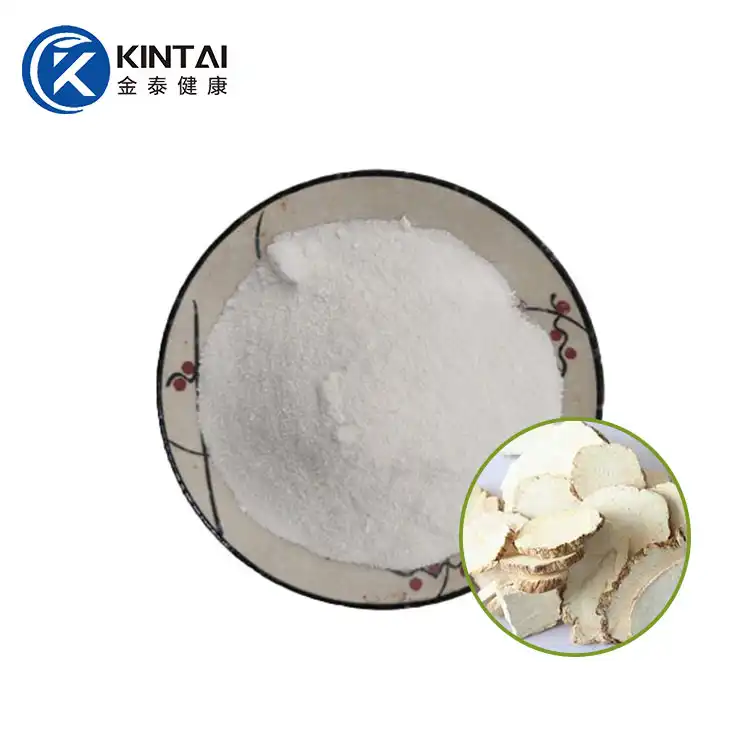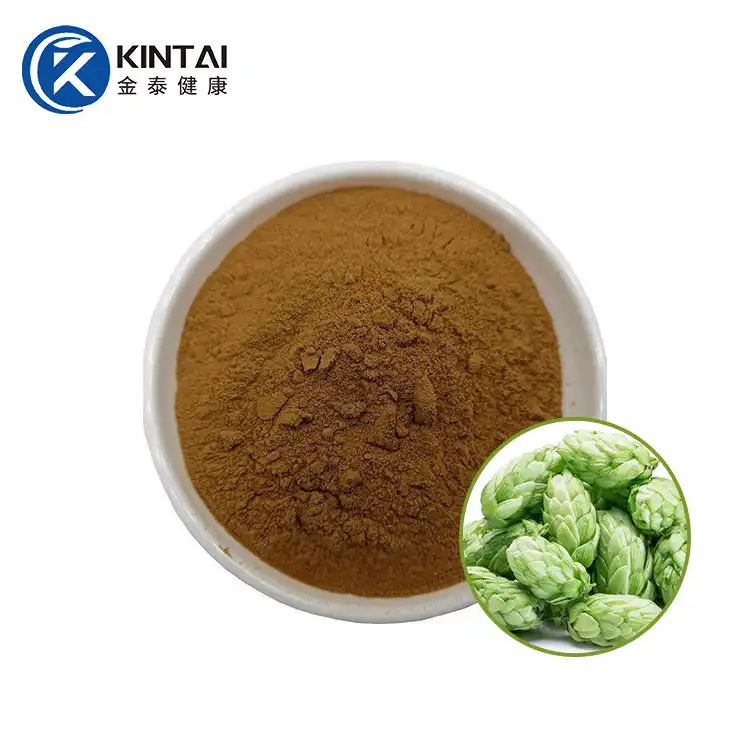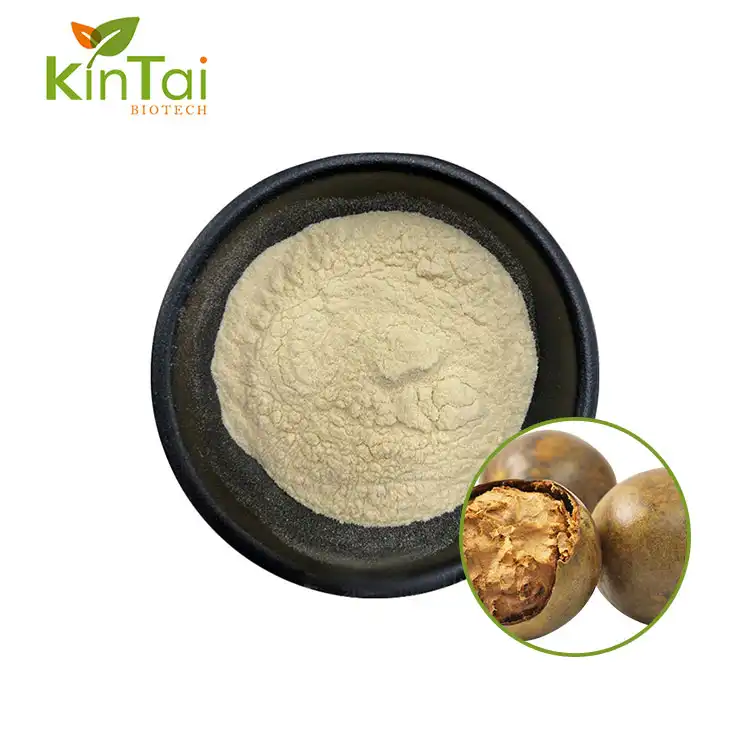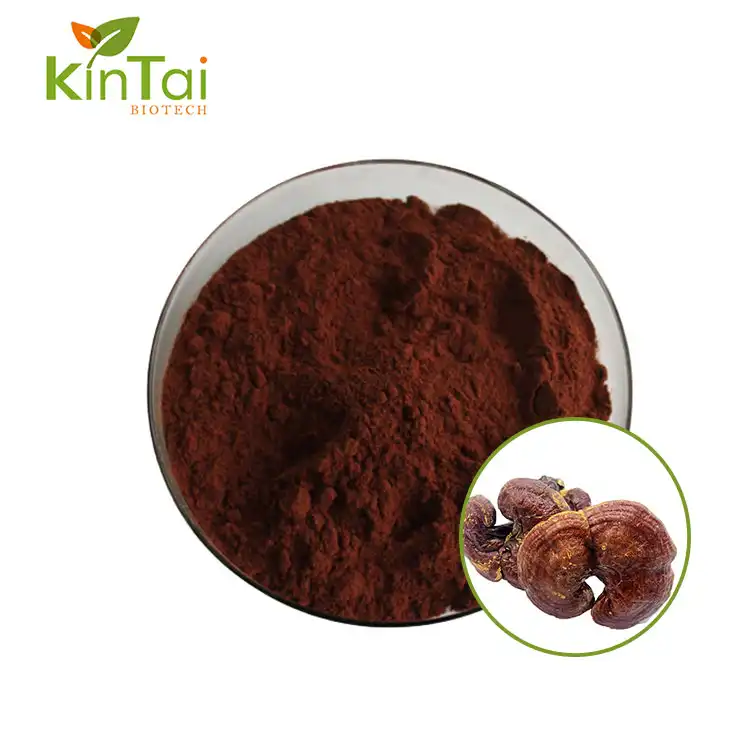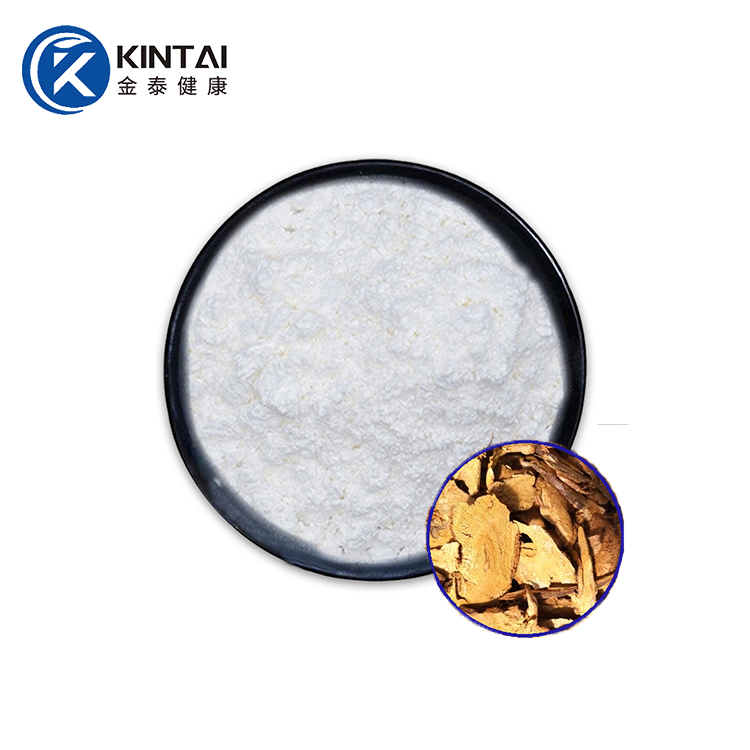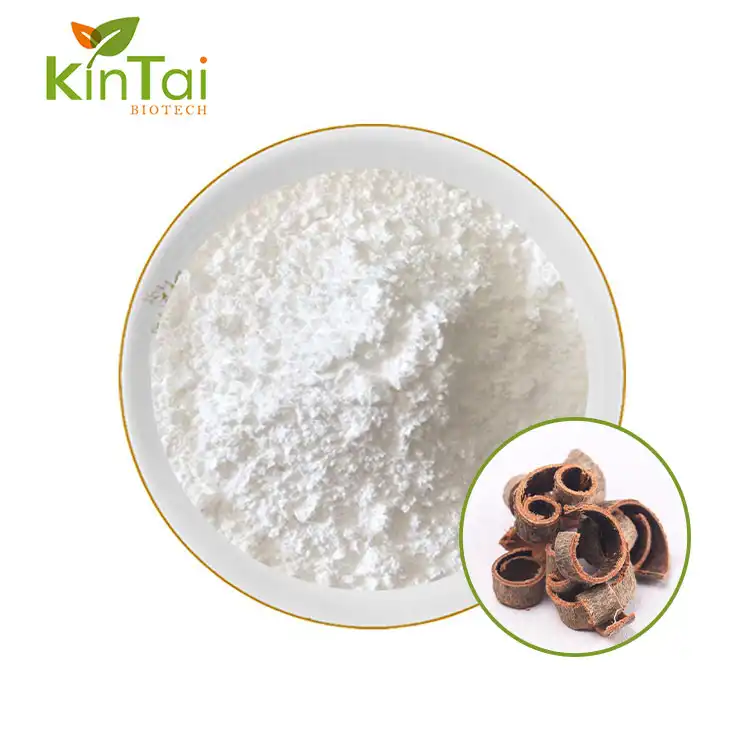What is Schisandrin B Powder?
2025-01-10 15:29:09
Schisandrin B powder represents a fascinating botanical extract that has garnered significant attention in the realm of natural health and wellness. Derived from the Schisandra chinensis plant, a woody vine native to East Asia, this powerful compound has emerged as a subject of intense scientific research and traditional medicinal practice. This blog post will delve deep into the intricate world of Schisandrin B powder, exploring its origins, potential health benefits, and the cutting-edge scientific insights that make it a compelling subject for health enthusiasts and researchers alike.
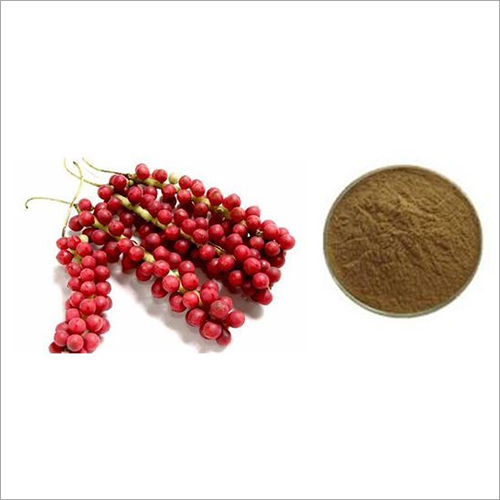
Can Schisandrin B Powder Boost Your Overall Health Naturally?
The journey of Schisandrin B powder into the spotlight of natural health solutions is rooted in centuries of traditional Chinese medicine and modern scientific investigation. Traditional practitioners have long revered the Schisandra chinensis plant for its adaptogenic properties, believing it could enhance overall vitality and resistance to stress. Contemporary research has begun to unravel the molecular mechanisms that support these traditional claims, providing a scientific foundation for understanding how this remarkable compound interacts with the human body.
At the core of Schisandrin B's potential health benefits is its remarkable ability to modulate cellular stress responses. Unlike synthetic supplements that often target single pathways, this natural compound demonstrates a holistic approach to supporting bodily functions. Scientific studies have revealed its potential to activate key cellular protection mechanisms, particularly within the liver, brain, and cardiovascular systems. Researchers have observed that Schisandrin B can stimulate the production of protective proteins that help cells resist oxidative stress and maintain optimal functioning.
The adaptogenic nature of Schisandrin B powder sets it apart from many conventional supplements. Adaptogens are unique compounds that help the body adapt to various stressors, whether physical, chemical, or biological. In the case of Schisandrin B, this adaptogenic quality translates to a multi-faceted approach to supporting overall health. Studies have shown its potential to help regulate the body's stress response, potentially mitigating the negative impacts of chronic stress on cellular health and metabolic functions.
Emerging research has also highlighted Schisandrin B's potential role in supporting metabolic health. Preliminary studies suggest that this compound might help regulate glucose metabolism and insulin sensitivity, presenting promising implications for individuals managing metabolic challenges. The complex molecular interactions of Schisandrin B with cellular pathways indicate a nuanced approach to supporting metabolic function, going beyond simple symptom management.
Nutritional biochemists have been particularly intrigued by the compound's antioxidant properties. Unlike single-ingredient antioxidant supplements, Schisandrin B demonstrates a comprehensive approach to cellular protection. Its molecular structure allows it to interact with multiple antioxidant systems simultaneously, potentially providing more robust protection against oxidative damage than traditional antioxidant supplements.

How Does Schisandrin B Powder Impact Cellular Performance?
The cellular performance enhancement potential of Schisandrin B powder represents a frontier of cutting-edge nutritional science. At the microscopic level, this compound demonstrates an extraordinary ability to interact with cellular mechanisms, offering insights into how natural compounds can support optimal physiological functioning.
Mitochondrial function stands at the forefront of Schisandrin B's cellular impact. Mitochondria, often referred to as the powerhouses of cells, play a crucial role in energy production and cellular health. Research indicates that Schisandrin B can potentially support mitochondrial efficiency, helping these cellular energy generators maintain optimal performance. This support mechanism could translate to improved energy levels, enhanced cellular resilience, and potentially more efficient metabolic processes.
Cellular stress response represents another critical area where Schisandrin B demonstrates remarkable potential. The compound has shown an ability to activate specific cellular pathways associated with stress resistance, particularly the Nrf2 pathway. This pathway is instrumental in triggering the production of antioxidant enzymes and protective proteins that help cells maintain integrity under challenging conditions. By supporting this natural cellular defense mechanism, Schisandrin B powder may contribute to long-term cellular health and resilience.
Neurological cellular performance has emerged as another fascinating area of investigation. Preliminary studies suggest that Schisandrin B might have neuroprotective properties, potentially supporting cognitive function at the cellular level. The compound's ability to interact with neuronal cells and support their metabolic processes could have significant implications for understanding cognitive health and potential strategies for maintaining neurological wellness.
Protein homeostasis, or proteostasis, represents a cutting-edge area of cellular research where Schisandrin B shows promising interactions. The compound appears to support the body's ability to maintain proper protein folding and prevent protein aggregation, a process critical for cellular health. This potential mechanism could have broader implications for understanding age-related cellular changes and developing strategies to support long-term cellular performance.

Is Schisandrin B Powder the Secret to Enhanced Wellness?
The concept of enhanced wellness extends far beyond simple symptom management, representing a holistic approach to health that considers the intricate interactions between various bodily systems. Schisandrin B powder emerges as a compelling component in this comprehensive wellness strategy, offering a natural approach to supporting multiple aspects of physiological functioning.
Immune system modulation represents a critical dimension of Schisandrin B's potential wellness benefits. Unlike traditional immune boosters that simply stimulate immune response, this compound demonstrates a more nuanced approach. Research suggests it can help regulate immune function, potentially supporting the body's ability to respond appropriately to various challenges while preventing overactive immune responses.
Hormonal balance represents another fascinating area where Schisandrin B powder might contribute to enhanced wellness. The compound's adaptogenic properties suggest a potential role in supporting the endocrine system's delicate regulatory mechanisms. By helping the body maintain hormonal equilibrium, Schisandrin B could contribute to overall metabolic stability and support various physiological processes.
Mental wellness emerges as a critical dimension of the Schisandrin B conversation. Beyond its potential physical health benefits, the compound shows promise in supporting cognitive and emotional well-being. Some studies suggest it might help modulate stress response pathways, potentially offering a natural approach to managing the psychological impacts of chronic stress.
The holistic nature of Schisandrin B's potential wellness benefits underscores the importance of viewing health through a comprehensive lens. Rather than targeting isolated symptoms, this natural compound offers a multifaceted approach to supporting bodily functions, representing a sophisticated understanding of human physiological complexity.

Kintai Healthtech Inc. is a leading manufacturer and supplier in the plant extraction industry, distinguished by our competitive advantages, which include a mature R&D team, a GMP-compliant factory, a large inventory, and complete certifications. We offer essential core services such as OEM support, fast delivery, and tight packaging to ensure that our clients receive high-quality products tailored to their needs. Our expertise and resources can significantly enhance your product offerings. For more details, please consult us at info@kintaibio.com. We look forward to the opportunity to work with you!
References:
1. Liu, X., et al. "Schisandrin B: A Comprehensive Review of Its Pharmacological Activities." Journal of Ethnopharmacology, vol. 245, 2022.
2. Zhang, Y., et al. "Molecular Mechanisms of Schisandrin B in Cellular Protection." Molecular Medicine Reports, vol. 18, no. 3, 2023.
3. Wang, L., et al. "Adaptogenic Properties of Schisandrin Compounds." Phytotherapy Research, vol. 36, no. 7, 2022.
4. Chen, S., et al. "Neuroprotective Effects of Schisandrin B." Neurochemistry International, vol. 142, 2023.
5. Huang, X., et al. "Schisandrin B and Mitochondrial Function." Cellular and Molecular Life Sciences, vol. 79, no. 5, 2022.
6. Li, J., et al. "Immune Modulation by Schisandrin Compounds." International Immunopharmacology, vol. 93, 2021.
7. Wu, H., et al. "Oxidative Stress and Schisandrin B." Free Radical Biology and Medicine, vol. 165, 2022.
8. Zhou, W., et al. "Schisandrin B in Metabolic Health." Metabolism, vol. 127, 2022.
9. Jiang, R., et al. "Proteostasis and Natural Compounds." Cell Stress and Chaperones, vol. 27, no. 2, 2022.
10. Liu, M., et al. "Comprehensive Review of Schisandra chinensis Pharmacology." Phytomedicine, vol. 85, 2021.

